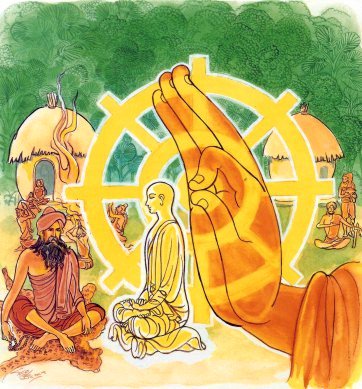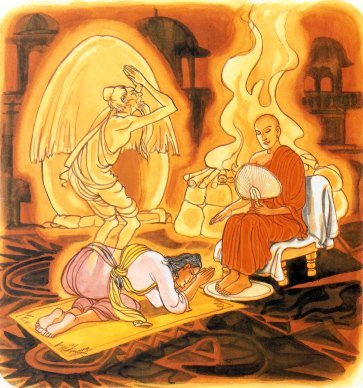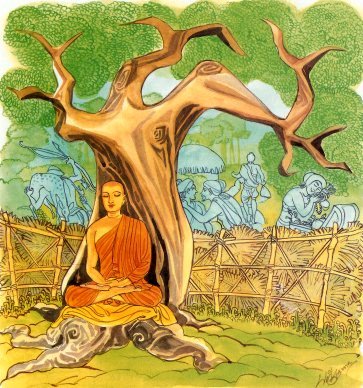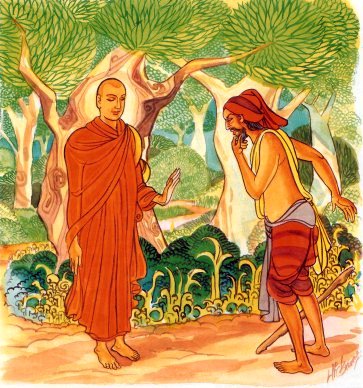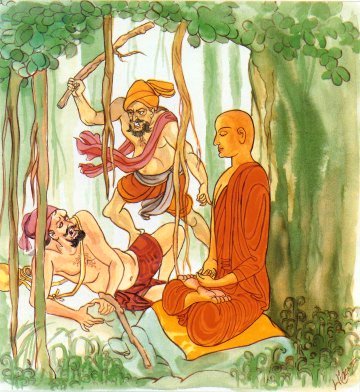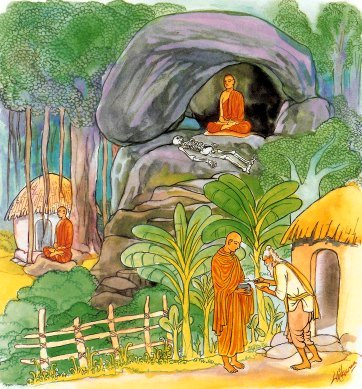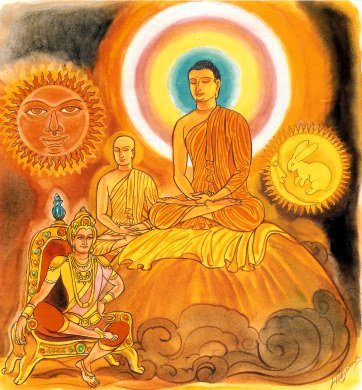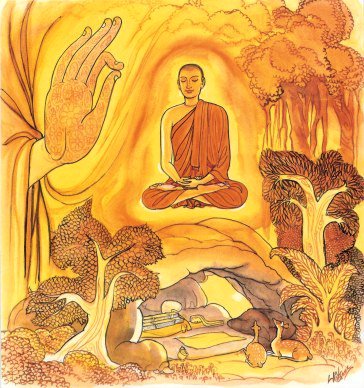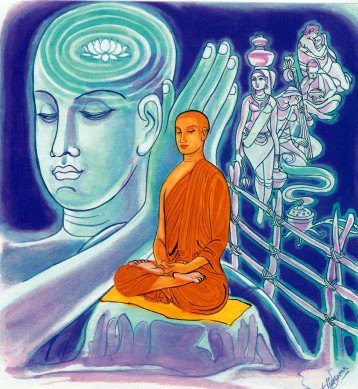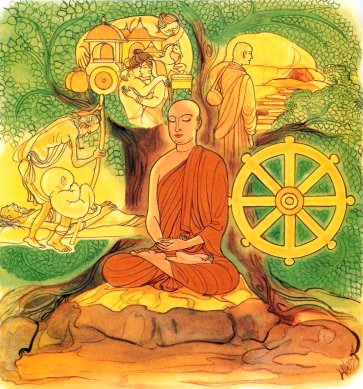By birth one is no brahmin,
by family, austerity.
In whom are truth and Dhamma too
pure is he, a Brahmin’s he.
Explanation: One does not become a brahmin by one’s matted hair. Nor does one become a brahmin by one’s clan. Even one’s birth will not make a brahmin. If one has realized the Truth., has acquired the knowledge of the Teaching, if he is also pure, it is such a person that I describe as a brahmin. Continue reading “Verse 393. One Does Not Become A Brahmin Merely By Birth”

